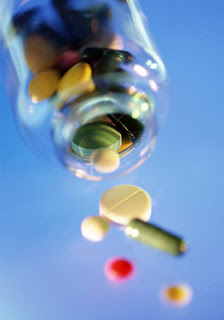It seems as though the newest trend in the exercise community is drinking beetroot juice as a supplement to improve exercise tolerance.
What are the benefits of drinking beetroot juice before competition?
Beetoot juice (and beets in general) are rich in nitrates, which are commonly found in many vegetables, fruits and grains. Nitrates can also be found in cured meats like salami, bacon, and hotdogs, as nitrate is added to preserve color and prevent growth of bacteria, but the danger in these cured meat nitrate sources are that the nitrate is more likely to be turned into nitrite and then nitrosamines, which are cancer-causing chemicals. (This is probably where you heard that nitrated are harmful!) The reason nitrate-rich fruits and vegetables are a better option is because most of them are also rich in Vitamin C, which is an inhibitor to the nitrosamine conversion.
Endurance athletes like runners, swimmers, divers, rowers, triathletes and cyclists are finding that drinking beetroot juice supplements as a form of nitrates may be able to give them a competitive edge. When we drink beetroot juice or take nitrate supplements, the nitrate is converted into nitrite and ultimately nitric oxide (NO) in the blood.
Endurance athletes like runners, swimmers, divers, rowers, triathletes and cyclists are finding that drinking beetroot juice supplements as a form of nitrates may be able to give them a competitive edge. When we drink beetroot juice or take nitrate supplements, the nitrate is converted into nitrite and ultimately nitric oxide (NO) in the blood.
Nitric oxide plays an important role in blood flow regulation, mitochondrial efficiency, and other physiological functions, so beetroot supplementation can have positive effects on exercise performance through:
Fruits and Vegetables that are High in Nitrate:- Decreasing blood pressure
- Reducing workload of the heart
- Increasing oxygen delivery throughout the body (muscle oxygenation)
- Increasing power output
- Improving time to exhaustion and time trial performances
How to increase blood nitrate levels
- Vegetables are much higher in nitrates than fruits, and include lettuce, beets, carrots, green beans, spinach, parsley, cabbage, radishes, celery, collard greens
- Some fruits that contain higher levels of nitrates includes strawberries, currents, gooseberries, raspberries, cherries
Beetroot juice may be a better option for athletes to drink before performance rather than eating hundreds of grams of nitrate-rich vegetables (huge spinach, carrot, beet smoothie, anyone?), mostly because the juice doesn’t have all that dietary fiber that the whole vegetables do, so it decreases the chances of GI distress and feeling overfull before a competition.
When compared to other nitrate-containing foods, though, drinking beetroot juice seems like the way to go!
 |
| ~300 mg of nitrates |
When compared to other nitrate-containing foods, though, drinking beetroot juice seems like the way to go!
In order to maximize on the beetroot juice’s effects, it is recommended that 5-7 mmol of nitrates (500 mL or ~2 cups of beetroot juice) be consumed 3-4 hours before exercise to allow plasma nitrite to be at its peak during exercise performance. They also make 70 mL beetroot shots, which are condensed down to contain the same amount of nitrates as a larger portion of beetroot juice.
This high nitrate state lasts for the next 6-8 hours and blood levels return back to normal after about 24 hours. Many studies have shown that even short-term supplementation (around 5-6 days of drinking the juice) will give the results that athletes are looking for!
Written by: Ashley Beaner, SDSU Dietetics Student
This high nitrate state lasts for the next 6-8 hours and blood levels return back to normal after about 24 hours. Many studies have shown that even short-term supplementation (around 5-6 days of drinking the juice) will give the results that athletes are looking for!
Written by: Ashley Beaner, SDSU Dietetics Student





